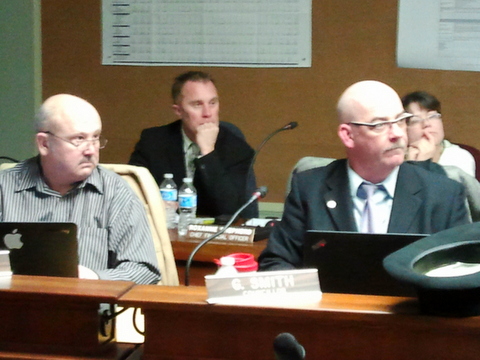To reserve or not to reserve - a funding question for hospitals
A vote slated for later this month will determine how much hospital tax every resident in the West Kootenay Boundary regions will pay this year.
At their meeting in January, the West Kootenay Boundary Regional Hospital District (WKBRHD) board asked their members to get feedback from their communities on how much they will contribute to a hospital reserve fund. The fund, explained Margurite Rotvold, chair of the board and a city councillor in Midway, is a reserve for equipment or construction that can be used for facility replacement, upgrades, emergencies, etc. for any hospital in the region.
“We used some of our reserve fund to lighten the load on our residential taxation by taking some of the reserve fund (for a project like the emergency room in Nelson renovation) rather than borrowing the full amount,” said Rotvold.
“We’re trying to be proactive and build this reserve fund. There was a motion last year to cap (the fund) at $10 million.”
The decision facing the board is how much to contribute – $1, 2 or 3 million. Accordingly, residents’ hospital tax will increase depending on which number is chosen.
Rotvold was clear to note that the funds are not yet earmarked for any particular project, although the board did hear that should the region decide to build a new regional facility for any reason the cost of the planning alone would be $10 million.
“Each regional hospital district is responsible for providing up to 40 percent of equipment and construction costs for health facilities in their areas,” added regional district representative for Area D Irene Perepolkin. “The WKBRHD facilities include Trail, Kootenay Lake, Boundary hospitals and the health centers in New Denver, Nakusp, Castlegar and Kaslo. We are looking for feedback on what you the taxpayer would like to see happen with this proposed reserve fund.”
The Grand Forks city council heard about the plans from mayor Brian Taylor in his report on Jan. 28. Taylor is not in favour of what he suggests is pre-taxation for the hospitals suggesting that later borrowing would extend payments and lessen tax burdens.
“There’s a group at the table that proposed that we begin to tax for a new facility… so the impacts on our taxation levels would be incurred by those kinds of anticipatory borrowing, so we can begin to put our money aside for this large project,” said Taylor. “My feeling at this point is that it doesn’t make a lot of sense for me. We’re already paying for what we’ve got and I agree if we’re going to do something in the future we don’t hit everybody with large tax increases, but we borrow money to extend over a period of ten or fifteen years.”
But Rotvold disagrees saying that the reserve minimizes peaks on residents’ taxation. “We’re trying to realize that this is a region we’re there to look after. What happens if we don’t contribute to it and there’s a major expense of $7 million? Do you want your requisition to triple or quadruple because you don’t have a reserve fund? That reserve fund is for emergency. I don’t want to wait until we get that major hit – I’d rather contribute a little bit each year than have a major spike.”
“It’s a challenge. You’re looking at a population of 85,000 with two larger hospitals and several smaller ones. It’s not easy,” Rotvold concluded.
The next hospital board meeting will take place Feb. 27 at which time each director will have a vote. The regional and local directors welcome feedback. Contact local representative or city council members who will be voting at the meeting: Grace McGregor, Margurite Rotvold, Brian Taylor, Barry Noll, Bill Baird, and Irene Perepolkin.






















